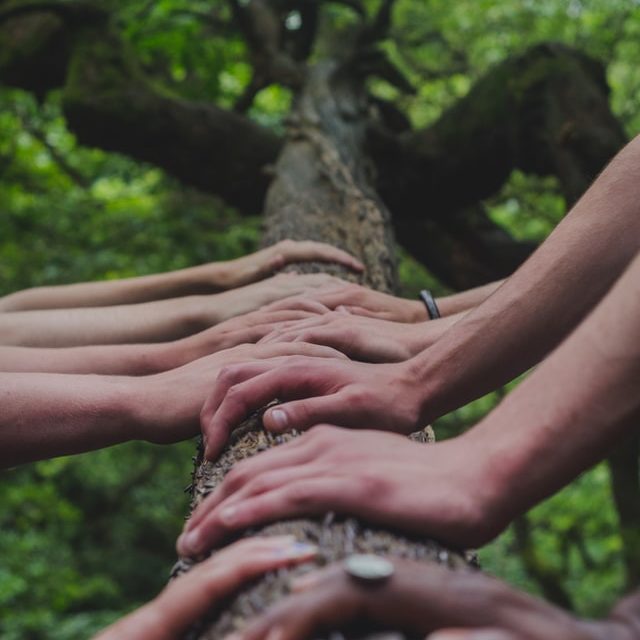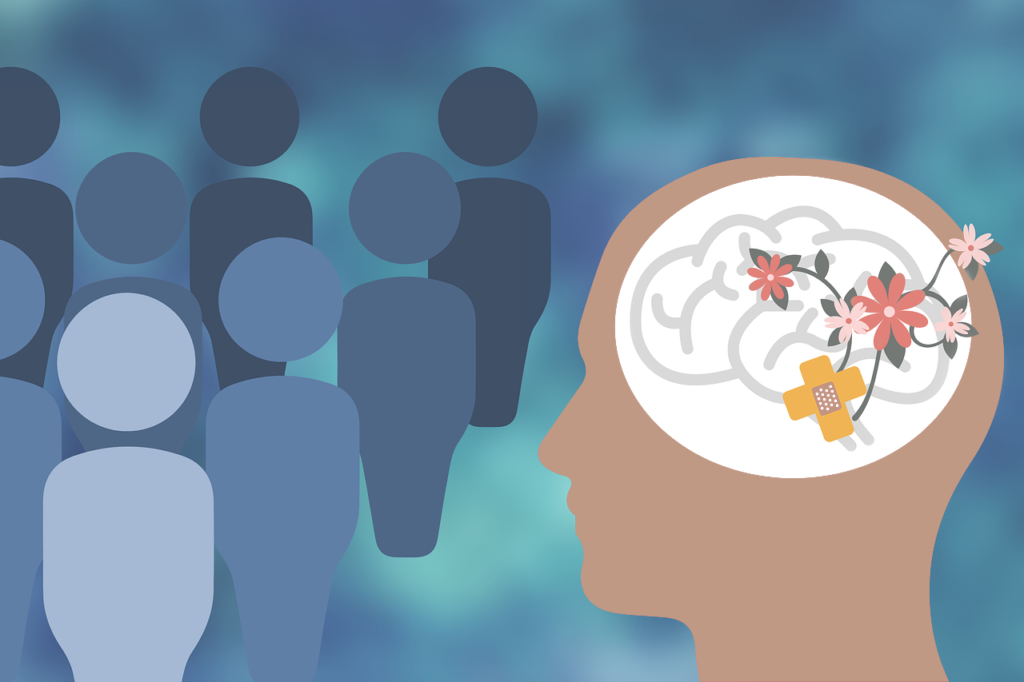Community Support Makes Us Resilient
August 4, 2021
A familiar sensation has been lingering in the air. Can you feel it? It’s perceptible throughout the community.
Children are clinging to the final weeks of summer vacation while mourning the impending loss of wild abandon. Back-to-school preparations are taking center stage as overwhelmed teachers and parents coordinate their hectic schedules. University students are left in a state of limbo – neither fully here nor there – as they wait to leave home to start a new program or return to classes. Others are standing by, calculating how many school zones they will need to pass through on their morning commute (and wondering how severely that might affect their patience).
Stress levels always seem to ramp up just as summer winds down and the new school year approaches. But this year, our collective stress runs deeper than usual.
The Root of the Problem
In addition to the usual tension we feel during this period, a particularly complex dread is now developing around the evolving COVID-19 saga.
The local transmission rates of coronavirus variants are increasing. This means that the odds of experiencing a “normal” start to the school year are low. Already, Manhattan-area schools and universities have issued mask mandates to mitigate the spread of the delta variant.
The guidance given now echoes that of earlier pandemic days – and it applies to everyone – regardless of vaccination status. We all know the drill: Wear your mask properly, practice good hand hygiene, keep six feet of distance between yourself and others, and report symptoms.
The message is clear. We are responsible for making educated decisions to safeguard our own well-being. We are urged to recognize that our personal choices affect the well-being of others. Our community is relying on us.
By now, we know that the lack of in-school learning during the 2020/2021 school year inflicted serious harm. TIME reported that children’s mental health worsened significantly after school closures. Left without immediate alternatives, many parents were pulled to leave work or modify their lives to provide care for young ones at home. University students moved away from their immersive campus communities and had to adjust to a more-or-less isolated virtual learning experience. We all found ourselves in a disconnected global environment rampant with illness and rapid job loss.
We found ourselves in the eye of the storm. Somehow, we held on. We are still holding on.

Lesson Learned: Community Counts
The saying “hindsight is 2020” now has an even greater meaning. Although we are not yet in the clear, at least we can say our pandemic experiences have made us more resilient.
Resilience is the ability to bounce back from difficulties, stress, or trauma; to cope with mental or emotional fallout during a crisis, and return to a baseline level of wellbeing. Resilience can be built up over time. It is important to develop both personal resilience and community resilience.
We held on despite real adversity and found new ways to connect and cope.
A major lesson we learned is that we really do need to rely on our loved ones and our community for support. We also learned that health and wellbeing can be improved on a larger scale when we are willing to cooperate. Fortunately, we can use what we have learned and what we have gone through to approach future challenges more strategically.
Adapting and Reacting
With something as volatile and uncertain as COVID-19, it often feels like “life” is just happening to us. Things feel out of control. We feel out of control. This experience has been traumatic and exhausting.
What we know is that humans are incredibly adaptable. Our minds and bodies are designed to respond to changing environments and acclimate to a variety of conditions. We have a unique ability to think creatively, solve problems, cope with stress, and overcome threats to our wellbeing.
This does not, however, mean that we are meant to do so alone. People are social creatures. We rely on cooperation and support to not only survive but to thrive.
“Life” will happen.
You can’t expect to always run the show. But it’s important to realize that how you react to your environment on a day-to-day basis is technically in your control. As the saying goes, “Life is 10% what happens to you and 90% how you react” (Charles R. Swindoll).
That’s not to say reacting appropriately is easy. When an unanticipated fight-or-flight reaction kicks in, it can feel like all bets are off. The things that trigger a reaction in people can vary and the way we react may be unpredictable (especially for those working through mental health issues).
It’s OK.
Responding with Resilience
Remember that resilience is a combination of skills, behaviors, and attitudes. Resilience can be learned and developed. We can do better than merely reacting to what life throws at us. Instead of relying on our capacity to react appropriately in the heat of the moment, we can practice becoming more responsive instead.
Address smaller issues first. Working together with family, friends, coworkers, and our community can put us in a more responsive mindset. Understanding different points of view and identifying common goals can help us to react more mindfully during difficult times.
So prepare yourself to receive and process difficult external stimuli. Learn how to respond effectively. Recognize that your words and actions will affect yourself and others. When we shift our goal to thriving instead of just surviving, connection and cooperation become essential.

Strength in Community Connections
Strengthening our relationships and leaning on our community can help us become resilient. In an article describing ways to build resilience, The American Psychological Association says:
“Connecting with empathetic and understanding people can remind you that you’re not alone in the midst of difficulties. Focus on finding trustworthy and compassionate individuals who validate your feelings, which will support the skill of resilience. The pain of traumatic events can lead some people to isolate themselves, but it’s important to accept help and support from those who care about you…Along with one-on-one relationships, some people find that being active in civic groups, faith-based communities, or other local organizations provides social support and can help you reclaim hope. Research groups in your area that could offer you support and a sense of purpose or joy when you need it.”
Connecting with others is proactive. Our social support networks help us gain control during difficult times. A strong sense of community enables us to utilize the resources and support that are readily available to us. Seek out these connections. Reach out if you need help.
Moving Forward Together
This summer we have had the chance to glimpse a return to pre-pandemic life. We have enjoyed beautiful weather and a chance to recuperate. We had a good run, but we still have more growing to do.
It is time, once again, to reflect on what we have been through. As we cross the threshold into a new school year and prepare to enter a new season, we will encounter many new opportunities to become more responsive and resilient.
We can reasonably expect that some stress, pain, or emotional distress may be part of the picture. New lessons will be learned. This too shall pass. Our resilience is growing, and we will thrive if we work together. ⯁

About the Author
Liza Womack
Former Director of Marketing and Communications at Andrews & Associates Counseling.
Suggested Reading
- Wild, Wonderful Love Relationship Retreat: September 16-17, 2023Andrews & Associates Counseling will be hosting the next Wild, Wonderful Love Relationship Retreat on Saturday, September 16 and Sunday, September 17, 2023 at Bluemont Hotel… Read more: Wild, Wonderful Love Relationship Retreat: September 16-17, 2023
- The Benefits of Seeing an Intern Therapist: Everything You Need to KnowSeeing an intern therapist can provide many benefits that you may not be aware of. In this article, we will explain exactly why they should be… Read more: The Benefits of Seeing an Intern Therapist: Everything You Need to Know
- How Employee Assistance Programs Support Workplace Mental HealthWhen it comes to employee wellbeing, things are not always as they seem… Employees are often expected to be high performers. They are typically required to… Read more: How Employee Assistance Programs Support Workplace Mental Health
- 3 Crucial Things to Understand About Survivors of Child Sexual AbuseIt is time to give the power back to the survivors… A Voice for Trauma Survivors My name is Dr. Briana Nelson Goff. My professional background… Read more: 3 Crucial Things to Understand About Survivors of Child Sexual Abuse
Counseling & Therapy for Individuals, Couples, Families, and Groups
terms & conditions
disclaimer
privacy policy
© andrews & associates counseling
Manhattan Main Office
4201 Anderson Ave., D110
Manhattan, KS 66503
Phone: 785-539-5455
A&A Kids Clinic
227 Blue Earth Place, Suite 203-c
Manhattan, KS 66502
Phone: 785-776-0749
Junction City Office
929 South Washington
Junction City, KS 66442
Phone: 785-539-5455
Wamego Office
1800 Farrell Drive
Wamego, KS 66547
Phone: 785-539-5455